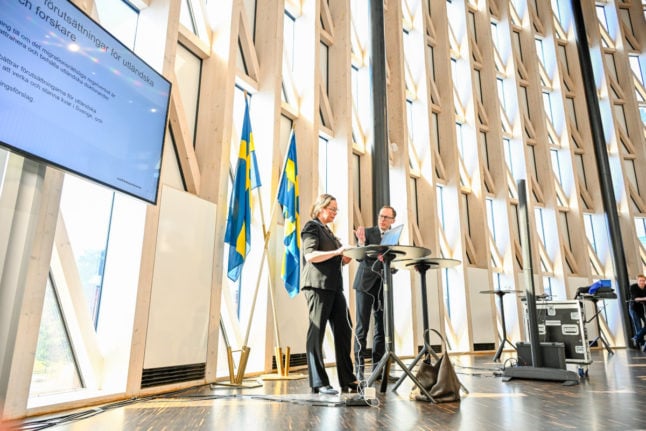Forty-one percent of people who started doctoral studies in Sweden in 2022 were foreigners, rising to 63 percent in natural sciences, the government said as it announced the inquiry on Monday.
“Sweden is a strong research and innovation nation, and international collaborations are central to us being able to maintain this. A crucial part of that is to pave the way for foreign researchers to come to Sweden and share their knowledge,” said Education Minister Mats Persson in a statement.
The inquiry is supposed to analyse whether Sweden’s migration rules are fit for the purpose of attracting and retaining foreign researchers and propose measures to make it easier for them to stay, amid concerns that too many talents leave the country after finishing their studies.
Before the summer of 2021, doctoral students were eligible for permanent residency if they had lived in Sweden with a permit for doctoral studies for four out of seven years, but no mention was made about whether or not the government might consider bringing it back.
The inquiry will also suggest ways of clamping down on foreigners who abuse the system. In a report in 2022, the Migration Agency found that a large number of people use their student permit as an easier way of moving to Sweden to work, instead of applying for a work permit.
“This assignment is an important step in the work to facilitate and improve the conditions for foreign doctoral students and researchers in Sweden,” said Migration Minister Maria Malmer Stenergard. “It is also important that residence permits for studies are only granted to people who intend to study in Sweden, and not to people who intend to use the system for other purposes.”
The inquiry has until December 9th to present its proposals.



 Please whitelist us to continue reading.
Please whitelist us to continue reading.
To retain (good) foreign researchers in Sweden, the universities will need to address a fair amount of (salary and promotion) discrimination. When I arrived in Sweden with more experience, articles, grants won and teaching experience than most of the senior lecturers, I was offered a lower salary and denied the docent title. There are so many stories like this and I would say that overall foreign scholars are mostly treated like a “lower class” at Swedish universities.